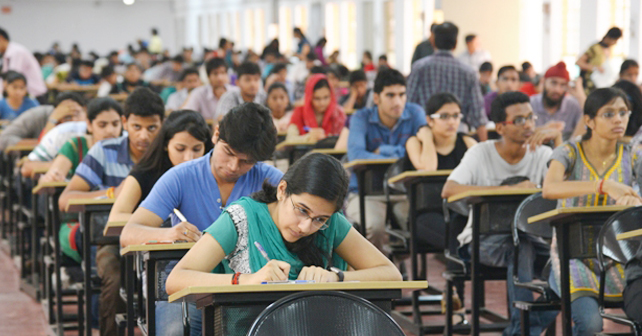Dr.Poongothai Aladi Aruna
Member of Legislative Assembly, Tamilnadu
As William S.Livingston said, federalism presupposes both unity and diversity and constitutes a device for synthesizing these opposite tendencies. The Government of India Act of 1935 states that the principle is to be balanced, judicious and impartial towards the Centre and the States.
However, central powers of post–independent India are continually diluting the autonomy of the Indian states.
The All India Medical Entrance Examination was introduced in 1985 by the Centre, forcibly taking away 15 per cent of the state government seats except from unified Andhra Pradesh and Jammu & Kashmir. The Tamil Nadu government should take urgent measures to retrieve the undergraduate, postgraduate and super-specialty seats from the all India quota. Successive governments in the State have devised an effective and transparent selection process without compromising on merit and simultaneously upholding social justice. In 2006, a law was passed in the Tamil Nadu Assembly to abolish all common entrance exams. This has enabled students from rural and underprivileged backgrounds to secure admissions into premier medical institutions. The present National Eligibility Entrance Test (NEET) policy has created confusion and fear among aspiring students, particularly those with underprivileged background in both rural and urban areas. Against this background, the central government and the political parties that support NEET need to explain to the general public their hurried interest in medical education.
The field of medicine is humanitarian and complex. Undoubtedly, merit is a mandatory requirement but the policymakers need to realise that language, communication and an understanding of the diversity of the spectrum of diseases based on the ecosystem form the cornerstone of an efficacious healthcare delivery system. Every year, a large number of students secure undergraduate admission in Russian medical universities. Before the commencement of their course, it is compulsory for the students to learn to read, write and speak Russian. Doctors interested in training in the U.S., the U.K. and Australia should clear the English exams before stepping into the corridors of their hospitals.
The lawmakers need to understand that unplanned and haphazard introduction of NEET violates Article 14 of the Constitution that guarantees to any person equality before law and equal protection of law. Every education system is different but the conduct of NEET by the Central Board of School Education (CBSE) and Medical Council of India raises doubts if the central government is trying to monopolise the education system through the back door.
Forcible imposition of NEET is a retrograde step that will widen the already existing gaps in our society. The U.S. recently introduced an affirmative action policy in higher education to eradicate racial discrimination; it strives to maintain federalism by prioritising the admission process and providing grants and scholarships to its own state students. The present government, which believes in rapid-fire radical reforms, can maintain just two lists—the Union and the State lists—and remove the Concurrent List. Successive governments at the Centre have been taking advantage of their overriding authority over subjects under the Concurrent List, paying scant regard to our pluralistic society. It would be prudent to allow health education in the State List, and the Centre can concentrate on its own expansive Union List.
Justice Murphy wrote that “Parliamentary sovereignty, also referred to as parliamentary supremacy, is the rule that Parliament has the power to make or unmake any law whatever.” Therefore, the NEET legislation must be kept in abeyance by Parliament until all the political parties resolve to work towards achieving the lofty goals of the founding fathers of our nation and the Constitution.
Courtesy : ‘The Hindu’ – 1st September 2016





